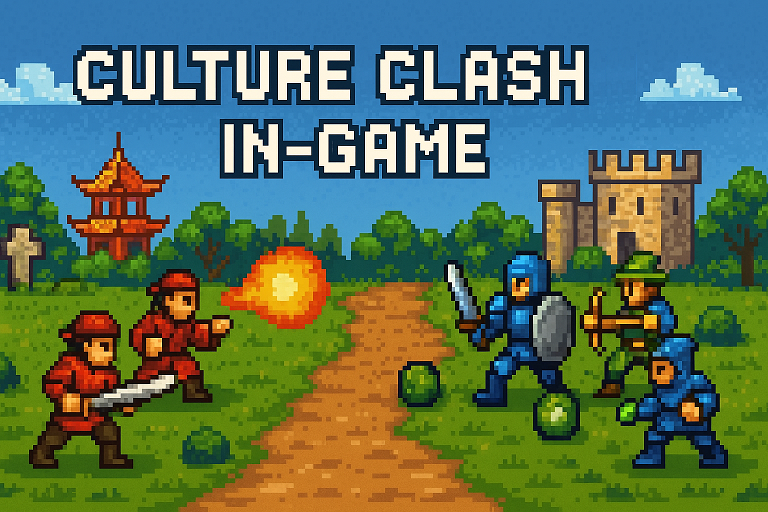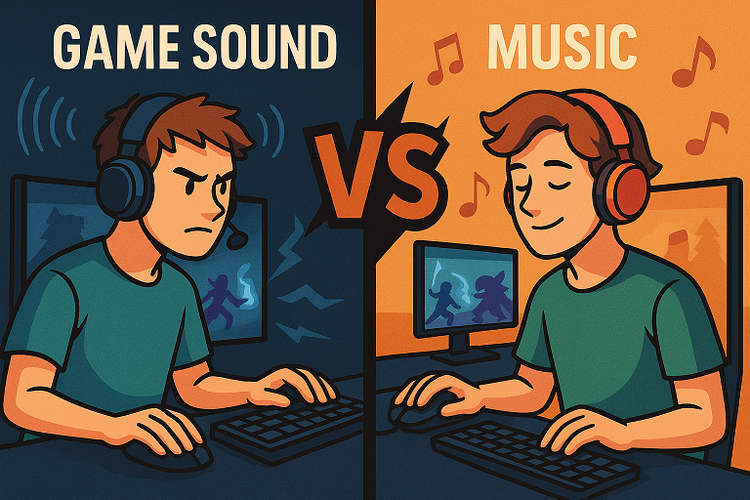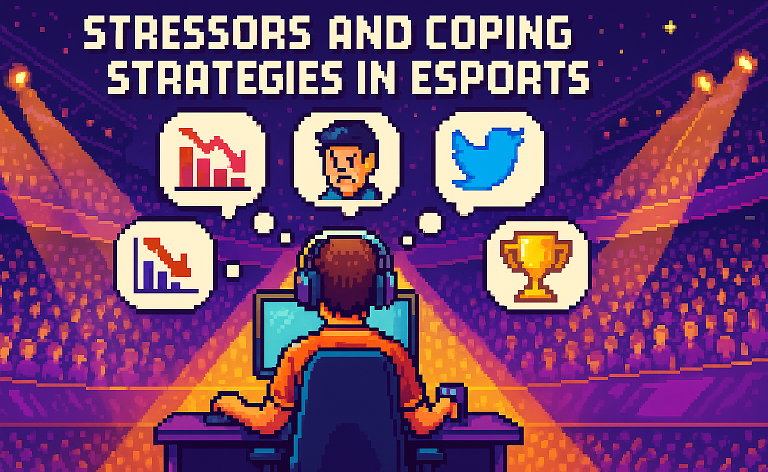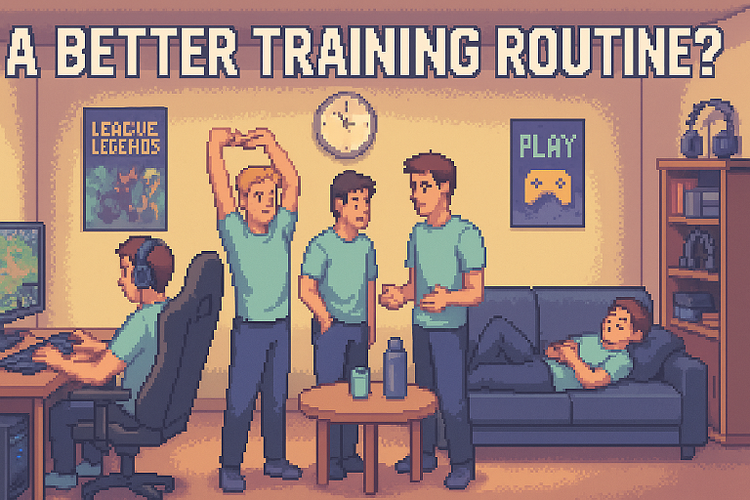How much Energy do you spend while Playing?
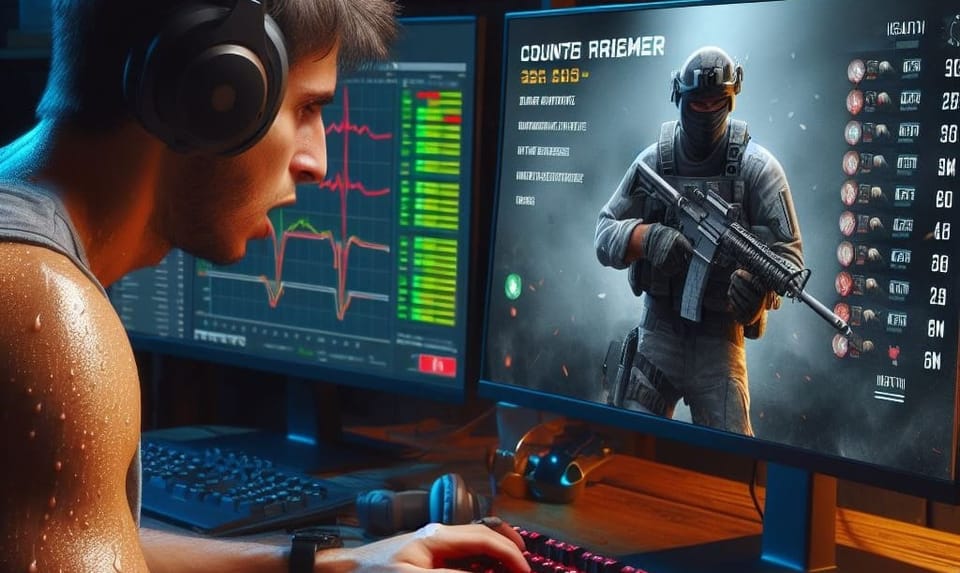
Greetings, gamers. 🙂 It's Sunday, time for Gaming Science. 🥳
Today, we'll discuss how much energy you spend when playing video games. We will compare the results to chess players and physical exercise. The study we'll be looking at represents the latest science, and was just published two weeks ago.
• Esports is different from traditional sedentary activities due to increased movement and cognitive demands.
• The study found a 17% increase in energy expenditure when playing compared to resting.
• Another study reported an increase of 40% (comparable to a light physical exercise).
• Game genre, motivation, degree of competitiveness, the environment and other factors may contribute of more or less energy expenditure during gaming.
• Chess players show a similar amount of energy expenditure while playing.
In the early days of esports, and even today to some extent, there's been ongoing debate among scholars, players, and enthusiasts about whether esports qualifies as a sport. The main argument for those who argue against it is the lack of bodily movement - and now I can hear you guys in my head screaming at me: But what about chess?
"While esports involves sitting, the increased movement and cognitive demand distinguish them from traditional sedentary activities [2]."
For most gamers, particularly progamer, this debate is largely obsolete. In fact, most researchers in the field today tend to agree that esports should be recognized as a form of sport. Esports - in order to play on the highest level - requires fine-motor coordination as well as perceptual-cognitive abilities [1].
Indeed, it's one thing to subjectively believe something or attempt to fit esports into existing sports definitions, and another to gather data that supports either perspective. Over the years, research has produced evidence (e.g., increases in heart rate, stress response) that even without much body movement, physical activation during gameplay occurs. But how much energy do you spend when playing video games? Furthermore, is there a difference between those who play competitively (esports) and just casually?
💽 Method
In order to answer the questions, the authors recruited 13 players - all in the top 10% of each game's ranking system. Some of them also played in professional leagues. Various data were collected from all participants a) in a state of rest (before playing, and without any physical exercise at least 24h before), and b) during gameplay. Now, let's look at what they found.
🔋 Results
Not surprisingly, the authors of the study found "that e’athletes expended significantly more energy during solo-queued ranked gameplay compared to rest [2]." But how much exactly?
"Our results showed a 17% increase in EE [energy expenditure] during gameplay [...] [2]."
It is argued that this increases can be explained through an increase in activity, like APM (actions per minute), as was found in another study [3]. Similar to the increase in energy expenditure, the participants' heart rate went up during gameplay compared to them resting. However, the results of the study, in combination with others, underscore the complex nature of the matter.
🤔 Implications
Let's start by putting these findings into perspective. A 17% increase in energy expenditure sounds like a lot, but isn't when the baseline is a person resting. In another study, MOBA players showed an increase in energy expenditure, compared to rest, of 40% [3] which could be classified as light physical exercise.
In my opinion, the important take away from this is that we now have an estimate - or a range - of how much energy is spend in addition when playing. However, there may be factors that could skew the range in any direction, like the game genre (Counter-Strike vs. Hello Kitty), motivation (lazy vs. engaged), degree of competitiveness (playing in order to relax or competing in a tournament), and the environment (on the couch or in a stadium about to play a grand final).
"These findings suggest that higher level e’athletes, different game title, or more competitive environments may elicit higher metabolic rates, however this requires further investigation [2]."
Getting back to earlier you probably yelling at me "But what about chess"? In one study, the authors looked at energy expenditure of chess players. What you'll find is chess players (resting vs. playing) have a similar amount of energy expenditure compared to the 17-40% range observed in gamers [4].
And finally, if you get into an argument with someone about whether esports is a sport or not, you can now confidently point towards the results of the two studies. However, it's not enough to tell your mum or girlfriend that you're going to work out and then disappearing in your room. 😄
Thanks for reading, and I hope you all have a great week. Cheers,
Christian 😃
Join over 250+ (🤯) Gaming Science subscribers and become smarter every week.
"I love this type of content, thank you Chris."
References
[1] Pedraza-Ramirez et al., 2020
[2] Nicholson et al., 2024
[3] Kocak, 2021
[4] Troubat et al., 2009

